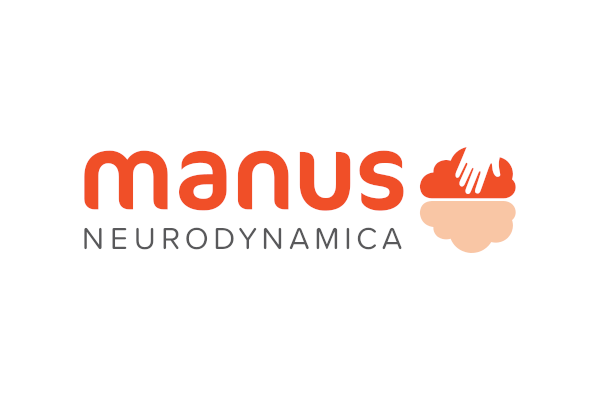Edinburgh, UK – 1 February 2021: Manus Neurodynamica Limited (“Manus”), which develops and markets products and technologies for neuromotor assessment, announces the results of a clinical study to evaluate the utility of the Manus system in the assessment of the extrapyramidal adverse effects of antipsychotic drugs conducted in collaboration with The University of Edinburgh and Lothian Health Board. The research was funded by The Digital Health & Care Institute, received NHS research ethical approval, and was conducted at the Royal Edinburgh Hospital, in NHS Lothian.
Anti-psychotic drugs have poor neurological tolerability, which seriously impedes compliance, with half of patients discontinuing treatment within 12 months. The commonest motor side-effect is drug-induced parkinsonism.
Twenty-one patients living with psychosis agreed to participate, gave informed consent, and were assessed by the current standard clinician-rated measure, the Extrapyramidal Symptom Rating Scale (ESRS), which assesses four types of drug-induced movement disorders: parkinsonism, akathisia, dystonia, and tardive dyskinesia, as well as by a standardised battery of writing tests using the Manus NeuroMotor Pen™ (NMP).
The results showed that the device was highly usable and acceptable to patients living with psychosis, and features measured by NMP were highly predictive of the clinical examination findings determined by ESRS. In addition tremor, bradykinesia and facial features of drug-induced antipsychotic adverse effects were also predicted by features measured by NMP.
The investigators concluded that the study suggests that the NMP is the first easily portable device capable of making an objective evaluation of the extrapyramidal adverse effects of antipsychotic treatment, and suggest that the NMP has clinical utility and validity to guide the treatment and management of those taking antipsychotics.
Manus’ product is a unique and patented diagnostic system which combines sensor technologies built into a digital pen with associated proprietary analytical software to capture and analyse minute limb and hand movements. These measurements provide objective information about movement abnormalities. The system is CE marked as a Class 1 medical device to support the diagnosis and monitoring of Parkinson’s Disease.
The Company, based in Edinburgh, was founded in 2008 and is a spin-out based on Dr Rutger Zietsma’s work in the area of neuroscience and handwriting with Prof Bernard Conway at the University of Strathclyde, Glasgow.
Dr Donald MacIntyre, Principal Investigator and Honorary Reader at the Centre for Clinical Brain Sciences, The University of Edinburgh said: “Antipsychotic drugs commonly produce extrapyramidal side effects such as muscle spasms, rigidity, and slow or jerky movements. These side effects can be debilitating, and prevent patients from carrying out many tasks in daily life and affect their compliance with taking medication. NMP will potentially enable objective, personalized tailoring of antipsychotic drug regimens to give the best therapeutic balance.”
Dr
Rutger Zietsma, Chief Executive Officer of Manus Neurodynamica, said:
“This clinical study represents an exciting potential new use for our
system. Accurate measurement and monitoring of neuromotor function can be used
to diagnose and manage a number of conditions, and we are delighted to have
been involved with such a prestigious group of collaborators in evaluating our
system in this application.”
Enquiries
| Manus Neurodynamica Ltd Dr Rutger Zietsma, Chief Executive Officer | 0131 563 5465 r.c.zietsma@manusneuro.com |
| Walbrook PR (PR advisors to Manus) Lianne Cawthorne / Anna Dunphy | +44 20 7933 8780 or lifesciences@walbrookpr.com +44 7584 391 303 / +44 7876 741 001 |
Notes to Editors
About Manus Neurodynamica – www.manusneuro.com
Dr Rutger Zietsma founded Manus in August 2008. The Company’s main activity is designing, patenting and marketing innovative technologies used in medical devices and personal care products which have the capability to improve people’s health and wellbeing. The Company implements quality procedures to medical standards.
Its principal product is a sensory pen designed for use in the diagnosis and monitoring of neuromotor impairments. The pen particularly focuses on patients with Parkinson’s disease and uses limb and hand motion to diagnose patients quickly and non-invasively. It has applications across not just diagnosis but also screening, monitoring, rehabilitation and drug development for a number of different movement disorders.
About NeuroMotor PenTM
NeuroMotor Pen™ (NMP) is a unique, patented and CE-marked system that combines sensor technologies built into a digital pen with software and an analytical engine with Decision Support System. The interface enables users to record non-invasively and analyse parameters of minute limb and hand motion. This enables quantification of fine motor skill. These parameters are used as ‘digital biomarkers’ to provide objective information about movement abnormalities. NMP can be used to support diagnosis and monitoring of Parkinson’s Disease and other neuromotor impairments. It has the potential to be a quick, inexpensive, non-invasive, and objective aid to diagnosis that can provide a low cost alternative to brain scans.
About Dr Donald McIntyre BSc, MBChB, MD, MRCPsych
Donald is an NHS consultant general psychiatrist, currently seconded to NHS 24 as mental health clinical lead, a post which he combines with clinical research. He graduated in Edinburgh in 1996, worked in London as a casualty officer, and started psychiatric training in 1999. He has combined research and clinical practice throughout his career.
About the Digital Health & Care Institute – www.dhi-scotland.com
The Digital Health & Care Institute is an Innovation Centre funded by the Scottish Funding Council in partnership with Scottish Enterprise and Highlands and Islands Enterprise and aims to create an open community where industry will collaborate and work together with academia, health care and social partners effectively on innovation opportunities which will create societal and economic benefits in Scotland.

